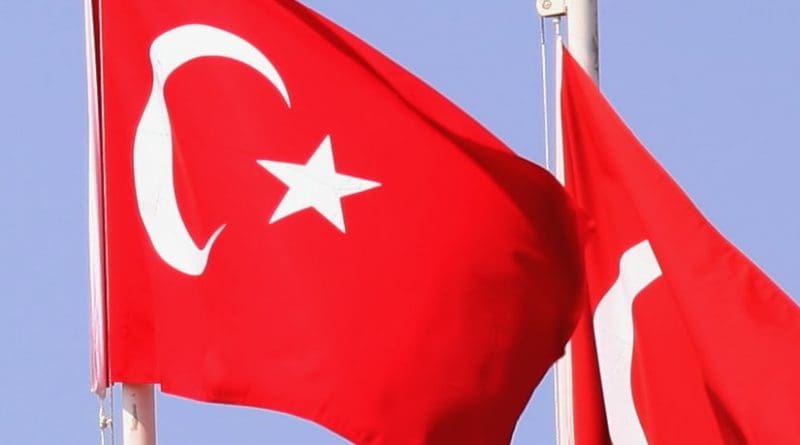Turkey: Car Bomb Attack On Ruling Party Wounds 48
By EurActiv
(EurActiv) — A car bomb exploded Monday (12 September) outside the ruling Justice and Development Party (AKP) headquarters in the eastern Turkish city of Van, wounding 48 people including two police officers, local authorities said.
Turkish officials blamed the attack on the outlawed Kurdistan Workers’ Party (PKK), which has waged a three-decade insurgency against the Turkish state and is considered a terrorist group by Ankara and its Western allies.
The attack took place near a police checkpoint outside the AKP offices in the heart of the bustling city, the local governor’s office said in a statement.
“Forty-six civilians and two police officers were injured after a bomb-laden car… was blown up by members of the separatist terror organisation,” it added, using a term to describe Kurdish militants.
No group has yet claimed responsibility for the bombing, which came on the first day of the Muslim holiday of Eid Al-Adha.
But Besir Atalay, an AKP lawmaker from Van, pointed the finger of blame at the PKK.
“The terrorist organisation has targeted our party building and the AKP’s presence in the past. This is one of their attacks,” he added, in live comments on the private NTV television.
Witnesses said the force of the blast shattered the windows in the surrounding vicinity and the AKP’s provincial offices sustained severe damage.
Several ambulances rushed to the scene and television images showed water cannon being used to put out a fire caused by the explosion.
Van, a city with a mixed Kurdish and Turkish population on the shores of the lake of the same name, has generally been spared the worst of attacks like those seen in the nearby city of Diyarbakir.
The city is a popular tourist destination, particularly with Iranians who arrive from across the border in huge numbers to enjoy shopping and the relaxed atmosphere.
‘Rule of law’
The blast came a day after the government announced the removal of 28 mayors, mainly over alleged links to the PKK in a move strongly denounced by pro-Kurdish parties.
President Recep Tayyip Erdoğan defended the suspension of 28 mayors, saying it was a long-overdue.
“You, as mayors and municipal councils, cannot stand up and support terrorist organisations,” he told reporters after prayers outside an Istanbul mosque, shortly before the attack.
Critics have accused the government of using the state of emergency declared in the wake of the July 15 attempted coup to implement a vast crackdown, but Ankara has defended the measures as crucial at a time it is battling alleged coup plotters and the PKK insurgency.
European Union’s foreign policy chief Federica Mogherini, who visited Ankara on Friday (16 September) for talks with Turkish leaders, said she expected steps would be taken in compliance with rule of law.
The government has also stepped up its military campaign in the restive southeast to eradicate PKK militants, who have launched almost daily attacks since the rupture of a fragile ceasefire last year.
In a message relayed by his brother, jailed PKK leader Abdullah Öcalan said the Kurdish conflict could end if the state was ready.
“He said if the state is ready for the projects we can implement them in six months,” Mehmet Öcalan told supporters in Diyarbakir, without offering further details.
Mehmet Öcalan also said his brother was in “good health” amid concerns over the jailed leader’s welfare after months cut off from the outside world on the Imrali prison island near Istanbul.
A group of 50 Kurdish activists including MPs announced on Monday they were ending their hunger strike on the eighth day, after receiving news on Öcalan’s health through his brother, a spokeswoman for the group said.
Tens of thousands of people have been killed since the PKK first took up arms in 1984, with the aim of carving out an independent state for Turkey’s Kurdish minority.
Turkey has also launched an operation inside Syria to remove Islamic State (IS) group militants as well as Syrian Kurdish militia from its frontier.

